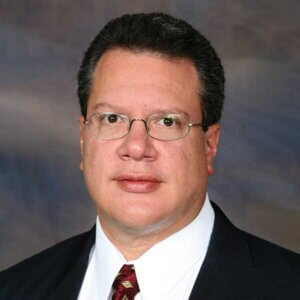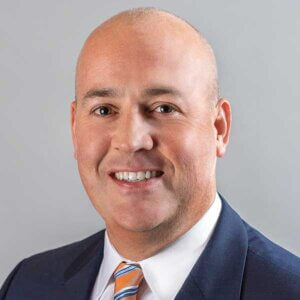What will transactions look like this year? What about an impending recession? These seem to be the hot questions with brokers, and Hotel Business spoke with leaders for their take. Michael Cahill, CEO/founder, HREC; Keith Thompson, principal, Avison Young; Brent A. Jaynes, managing partner, Leisure Real Estate Advisors LLC; Justin Pinkard, principal, Mumford Company; and Bennett Webster, principal/senior marketing director, Paramount Lodging Advisors, gave us their insight.
—Abby Elyssa
How was business for your company last year?
Cahill: 2022 as a strong year for closings. HREC closed more than $1.6 billion in transactions.
Thompson: The year 2022 was tale of two cities. In the beginning of 2022, everyone, including me, thought it was going to be a record year. Then the tech stocks started falling, inflation was unlike anything I have ever seen and, then, the Fed started what was the most aggressive sequential rate increases in my adult life. Therefore, the first half was good, but the hotel transaction market for the second half was negatively affected.
Jaynes: Beginning in March/April, we expected a quick slowdown because of the rise in interest rates. However, we really didn’t see ripples in investor activity until the November rate hike. Since then, we are hearing about loan rate quotes, which many investors are just not used to seeing.
Pinkard: Despite high inflation, rising interest rates and continuing recessionary concerns, Mumford Company demonstrated continued growth with a 32% increase in listings and a 60% increase in the number of transactions year-over-year. Our strategic plan placed additional brokers in key expansion markets.
Webster: 2022 was a very strong year for our team. This includes multiple team and industry record sales figures. RevPAR levels now fully recovered post-pandemic, combined with a lower interest rate environment for the first half of the year, allowed for a very fertile sales environment.
What do you foresee for the transactions market this year?
Cahill: 2023 will be seller driven in terms of overall transaction volume, which hotel owners have a reason to sell at current market pricing.
Thompson: There is so much capital wanting to be in the hotel space, and we believe some transactions will happen. We estimate the first half will be challenging, but we believe the second half will see a more robust transactional environment.
Jaynes: The increased rates have finally caused a bit of “bid/ask” gap, which will slow transactions a bit. Rising rates always have caused cap rate increases and will take a brief period where the market will balance again.
Pinkard: The capital market shift that characterized the latter half of 2022 will influence the transaction market in 2023. Higher interest rates and less mortgage capital due to more stringent underwriting will slow the transaction market in the first half of 2023. A continued disconnect between buyer and seller price expectations will continue to be a factor, as the strong metrices in the first half of 2022 influence the pricing perspective of sellers, while buyers are facing the harsher realities of the current debt markets. Nevertheless, there continues to be a strong appetite for high-quality deals.
Webster: Our team remains bullish on the underlying fundamentals of our industry despite the prevailing headwinds with debt markets and ongoing broader recessionary concerns. We continue to see weekly RevPAR gains at the national level and ADR growth is outpacing broader CPI figures. These gains, balanced with strong hiring and employment numbers in the lodging and service sectors, should benefit top-line and bottom-line performance for owners. Capital markets aside, this bodes well for stronger performance and additional transaction activity.
What’s driving transactions (or halting them)?
Cahill: Transactions will still occur. The primary challenge is the downward effect of higher interest rates on market pricing and sellers with a reason to dispose of assets at current values. The last half of 2023 is anticipated to return to typical exchange levels after a slower first quarter of 2023.
Thompson: Interest rates, interest rates and interest rates.
Jaynes: Business fundamentals (and cashflow) remain strong. Strong cash flow will always attract investment. However, on the flip side, it appears that a more significant factor in slowing transactions will be the reluctance to sell. For many owners, they don’t wish to sell and trade into a more costly debt structure.
Pinkard: Some of the influences on transactions today are interest rates, lower loan-to-value ratios, persistent recessionary concerns and the disconnect between buyer and seller price expectations. These circumstances have had a direct impact on the transaction market, causing some deals currently in underwriting to be retraded or abandoned altogether.
Webster: High opportunity cost and risk elsewhere is largely benefiting the hotel sector and driving transactions. While yields remain thin in certain asset classes (multifamily, industrial, etc.) and nonexistent in others (office, equity markets, etc.), the hotel recovery continues to take shape. RevPAR levels remain well north of 2019 performance at the national level. Buyers are keen to note that the lodging industry still largely affords opportunistic returns while offering the benefits of a hard asset that remains ideally hedged against ongoing inflation concerns. Capital markets and limited sale inventory remain the two largest impediments to the current sales environment. We believe sellers will come to terms with the new normal or face unavoidable capital events, and they will cautiously enter the market.
What are your thoughts on a possible recession?
Cahill: Maybe, but a shallow recession. The key is that hotel operation fundamentals are expected to remain favorable for asset specific cash flow.
Thompson: I personally believe we could be looking at another 18-month recession like 2008-2009 again. America can only take so much tightening of money, rampant inflation and social unrest. I fear the boil over will be the economy.
Jaynes: If inflation persists then, yes, a self-induced recession is certainly possible. Right now, except for the tech industry, business fundamentals are outpacing recession fears.
Pinkard: I believe it is very likely that some level of recession is coming, but when, how deep and how long are the million-dollar questions. The Federal Reserve has decided that returning to low inflation should be the top priority through tighter monetary conditions. The timing of said recession is unknown as GDP continues to grow, employment numbers remain strong and consumer spending has yet to decline. If these factors don’t change, any downturn should be shorter and less severe.
Webster: Our team remains cautiously optimistic in the potential for a reasonably soft landing and/or a mild recession amidst ongoing strength in the employment figures and receding CPI figures (even if the pullback remains stubbornly slow). Recession or not, certain Southern and Sun Belt markets remain ripe for growth and economic expansion. Conversely, certain Northern markets will increasingly come into play as a contrarian investment amidst their ongoing recovery.
What challenges do you see for this year? What about some opportunities?
Cahill: Opportunities include strong levels of equity capital looking aggressively to invest in hotel properties. And debt for buyers is available, albeit at a higher cost. So, hotel transactions will occur.
Thompson: If you own a pure leisure hotel, resort or campground, you are the happiest owner in America. Luxury and resort will be the best performers and economy extended-stay will still provide the best returns on equity in the industry. The problem will be all the segments in between. ADR growth will only take us so far before the consumer says, “I will just stay somewhere else or not go at all.” This is the greatest risk to the mid-market segment in 2023.
Jaynes: If the inflation rate stops decreasing and forces the Fed’s hand to further increase rates, then it will be a problem. Also, as mentioned earlier, many owners would rather hold than sell into a higher cost debt structure. There will always to those wanting to sell, those looking to retire, redeploy capital or avoid refinancing, or to do a PIP. Those are the owners we will be looking for.
Pinkard: Some of the challenges facing the hospitality industry this year include labor shortages/retention and increased operating costs. 2022 saw one of the strongest travel seasons in many years, and this year, room revenues are projected in markets to reach new heights through continued growth in ADR and group business. RevPAR reached an all-time high in 2022 surpassing 2019.
Webster: Debt markets will remain the flavor of the day and the primary hurdle for the transaction market. This will create opportunities for buyers with stronger lending relationships and for well-healed buyers capable of acquiring assets on an unlevered basis.
What is your focus for the rest of the year?
Cahill: Assisting sellers at market pricing to dispose of their assets.
Thompson: Simple—close quick and close often.
Jaynes: Above comment, and we are always interested in social media tracking. Also, we will be exploring the new AI technologies.
Pinkard: In 2023, we will continue to assist our clients by providing expert analysis on current portfolio holdings, assisting in the disposition of non-core assets and the acquisition of assets that meet new holding criteria. Mumford Company will also continue its expansion efforts by adding key personnel in preidentified markets of interest.
Webster: Our focus for the year will be to cut through the broader national noise and recessionary concerns by focusing on the individual merits of each deal and each market. Our team remains bullish on our industry and the asset class. We are confident that lodging fundamentals remain strong.





